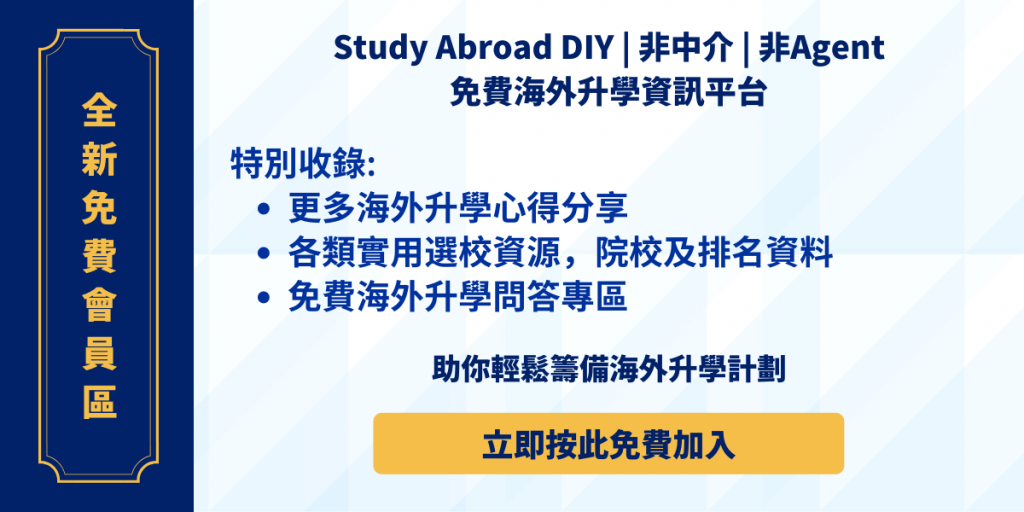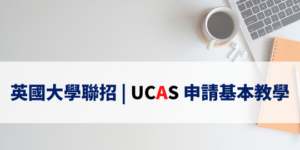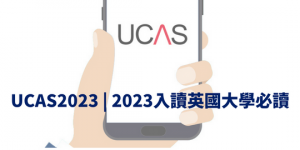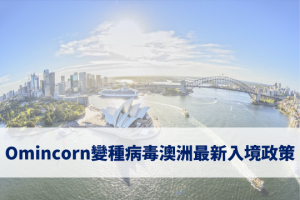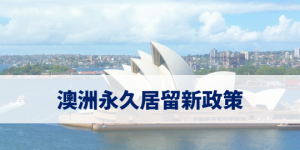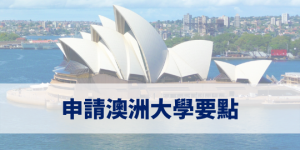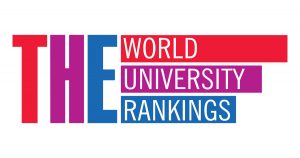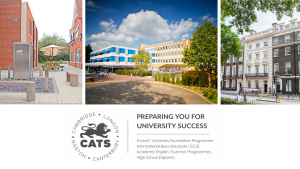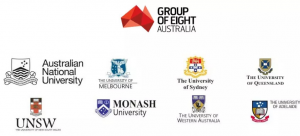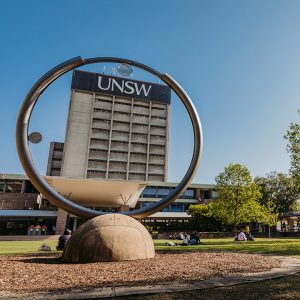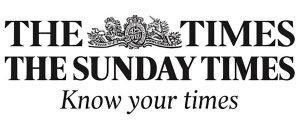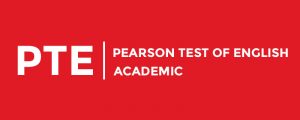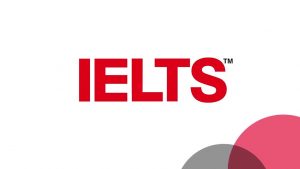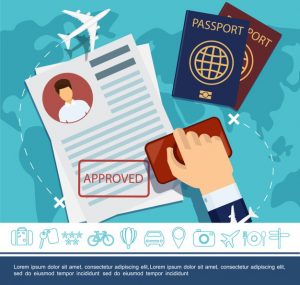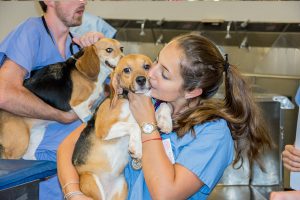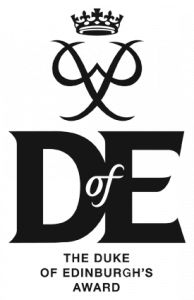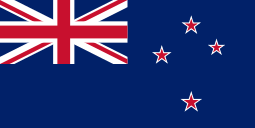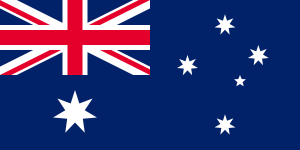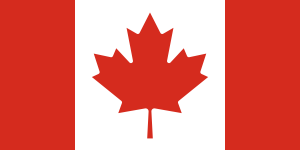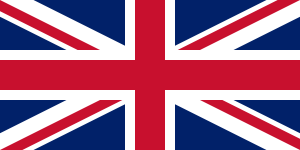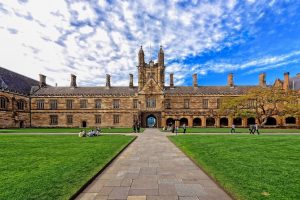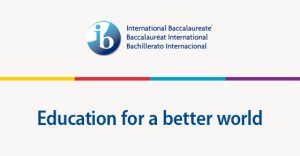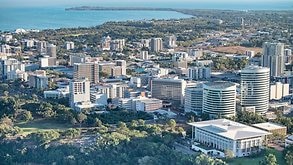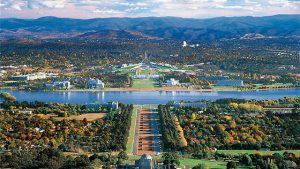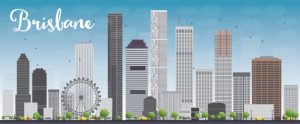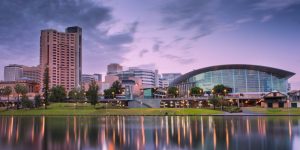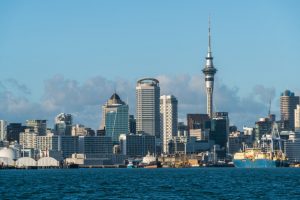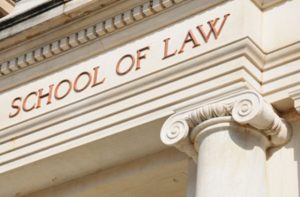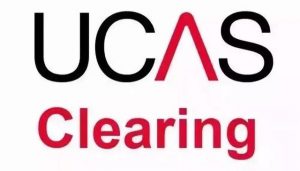相信很多同學和家長都會把入讀醫學院作為努力學習的目標,只要入讀到醫學院,成為醫生,畢業後除了可以服務他人外,工作亦可以得到保障,是不少同學嚮往入讀的學科。下面會為大家篩列出本地和海外大學醫學院的基本課程資料和內容,以及畢業後註冊的條件。
成為醫生的學習旅程
其實踏上從醫之路是一個漫長的學習旅程,入讀醫學院只是第一步,在完成醫學學位課程後,還要需要經過實習才可正式執業。所以除了要成績優秀之外,更需要有決心和服務他人的使命感才能夠成為一個合資格的醫生。
不少同學對於醫生職責的印象可能來自於看過的劇集例如《仁心仁術》(ER)、《醫人當自強》(Grey’s Anatomy)等
其實醫生工作除了是為病人檢查及診斷、處方藥物、進行療程或手術等,同時亦會負責醫護行政工作,如推廣公共衛生等。
有志讀醫的中學生如果想探索醫生的行業實況,可以透過參加不同的義工計劃,如到醫院、老人院做義工,親身走進前線環境了解醫生的真正工作和使命。
成為專科醫生
在香港,分別有六十三種專科醫生。專科醫生的分類大多以以下三個方向來區分:
- 外科或內科
- 器官或技術為基礎
- 年齡範圍
外科(Surgery)與內科(Internal medicine)最大的分別,是在於有否「外科手術」包含在其中。一般而言,外科負責的為以手術為病人解決病原,例如切除腫瘤、切除衰竭的器官等等。而內科包括的有很多,例如疾病的定義、病狀研究、流行病學以至臨床的診斷、治療及預防其實都屬於內科。
至於「器官或技術為基礎」及「年齡範圍」則比較簡單。「器官或技術為基礎」是指該專科是以人體器官為基礎,或是治療技術為基礎,例如「心臟科」、「腸胃肝臟科」、「眼科」等就是以人體器官為基礎的專科;而「放射科」、「核子醫學科」等則是以治療技術為基礎。至於年齡範圍,就是常說的「兒科」、「老人科」等,以病人的年齡範圍作區分。
| 麻醉科 Anaesthesiology | 危重病學 Intensive Care | 社會醫學 Community Medicine | 急症科 Emergency Medicine |
| 眼科 Ophthalmology | 骨科 Orthopaedics & Traumatology | 耳鼻喉科 Otorhinolaryngology | 兒科 Paediatrics |
| 心臟科 Cardiology | 深切治療科 Critical Care Medicine | 皮膚及性病科 Dermatology & Venereology | 內分泌及糖尿科 Endocrinology, Diabetes & Metabolism |
| 血液及血液腫瘤科 Haematology & Haematological Oncology | 腎病科 Nephrology | 腦神經科 Neurology | 呼吸系統科 Respiratory Medicine |
| 放射科 Radiology | 臨床腫瘤科 Clinical Oncology | 核子醫學科 Nuclear Medicine | 外科 General Surgery |
| 心胸肺外科 Cardio-thoracic Surgery | 整形外科 Plastic Surgery | 小兒外科 Paediatric Surgery | 免疫及過敏病科 Immunology & Allergy |
| 行政醫學 Administrative Medicine | 公共衛生醫學 Public Health Medicine | 職業及環境醫學 Occupational and Environmental Medicine | 解剖病理學 Anatomical Pathology |
| 血液學 Haematology | 免疫學 Immunology | 臨床微生物及感染學 Clinical Microbiology and Infection | 紓緩醫學科 Palliative Medicine |
| 婦科腫瘤科 Gynaecological Oncology | 泌尿婦科 Urogynaecology | 生殖醫學科 Reproductive Medicine | 母胎醫學科 Maternal & Fetal Medicine |
| 兒童體智及行為發展學科 Developmental-Behavioural Paediatrics | 兒童腦神經科 Paediatric Neurology | 臨床毒理科 Clinical Toxicology | 兒童呼吸科 Paediatric Respiratory Medicine |
| 遺傳及基因組病理學 Genetic and Genomic Pathology | 血管外科 Vascular Surgery | 兒童血液及腫瘤科 Paediatric Haematology & Oncology | |
| 麻醉科 Anaesthesiology | 危重病學 Intensive Care | 社會醫學 Community Medicine | 急症科 Emergency Medicine |
| 眼科 Ophthalmology | 骨科 Orthopaedics & Traumatology | 耳鼻喉科 Otorhinolaryngology | 兒科 Paediatrics |
| 心臟科 Cardiology | 深切治療科 Critical Care Medicine | 皮膚及性病科 Dermatology & Venereology | 內分泌及糖尿科 Endocrinology, Diabetes & Metabolism |
| 血液及血液腫瘤科 Haematology & Haematological Oncology | 腎病科 Nephrology | 腦神經科 Neurology | 呼吸系統科 Respiratory Medicine |
| 放射科 Radiology | 臨床腫瘤科 Clinical Oncology | 核子醫學科 Nuclear Medicine | 外科 General Surgery |
| 心胸肺外科 Cardio-thoracic Surgery | 整形外科 Plastic Surgery | 小兒外科 Paediatric Surgery | 免疫及過敏病科 Immunology & Allergy |
| 行政醫學 Administrative Medicine | 公共衛生醫學 Public Health Medicine | 職業及環境醫學 Occupational and Environmental Medicine | 解剖病理學 Anatomical Pathology |
| 血液學 Haematology | 免疫學 Immunology | 臨床微生物及感染學 Clinical Microbiology and Infection | 紓緩醫學科 Palliative Medicine |
| 婦科腫瘤科 Gynaecological Oncology | 泌尿婦科 Urogynaecology | 生殖醫學科 Reproductive Medicine | 母胎醫學科 Maternal & Fetal Medicine |
| 兒童體智及行為發展學科 Developmental-Behavioural Paediatrics | 兒童腦神經科 Paediatric Neurology | 臨床毒理科 Clinical Toxicology | 兒童呼吸科 Paediatric Respiratory Medicine |
| 遺傳及基因組病理學 Genetic and Genomic Pathology | 血管外科 Vascular Surgery | 兒童血液及腫瘤科 Paediatric Haematology & Oncology |
所以獲得醫學學位只是成為醫生的第一步,若要成為專科醫生,便需要接受額外的培訓和進修。
成為醫生的第一步
現時香港只有兩所大學設有醫學院,分別是香港大學及香港中文大學。要成為醫生,就必須修讀內外全科醫學士(Bachelor of Medicine and Bachelor of Surgery),香港大學的學位名稱是MBBS,香港中文大學的卻是MBChB,其實兩者都源於拉丁文Medicinae Baccalaureus et Baccalaureus Chirurgiae,只是簡稱不同而已。
按近年的收生數據顯示,文憑試考生須考獲最佳七科合共41分才能獲得MBChB的面試機會,而MBChB-GPS更專門招攬精英中的精英,報讀者至少要考獲最佳七科合共46分的佳績,而其中四科必須為5**等級。
由於入學競爭非常大,有不少同學會同時考慮報讀海外大學的醫學院,所以我們亦在下面列出幾個熱門升學國家的醫科課程資料供大家參考。
醫科排名
在香港開設同類學科的大學及入學條件
University of Hong Kong 香港大學
| JUPAS Code: | JS36456 |
| Programme Name: | Bachelor of Medicine and Bachelor of Surgery |
| Study Duration: | 6 years |
| Entry Requirement: | 2020 Average Best 6 DSE Score: 45 |
| English Requirement: | DSE Level 3 |
| Additional Requirement | Applicants with good results in science subjects (Biology and/or Physics) are preferred. |
| Tuition Fee: | $HKD 42,100 |
| Website: | http://www.med.hku.hk/en/teaching-and-learning/undergraduate-studies/programmes/mbbs |
課程大綱參考
The Biomedical Sciences Curriculum will include the following clusters:
- Introduction to Health Sciences
to strengthen your foundation in basic and health sciences. - Professionalism and Clinical Skills
to gain an overview of the processes of diseases and an introduction to the therapeutic strategies for modulating disease processes. - Precision Medicine
to explore the exciting innovations in treating disease at the frontiers of genetics and genomics, artificial intelligence, robotics and others. - Medical Humanities, Ethics and Law
to learn about the ethical and legal implications of modern medical care, medical humanities and professionalism. - Medicine and Society
to learn about caring for the patient as an individual, and as a member of a family and a community.
Introduction to the Art and Science of Medicine (13 weeks)
Most people think of medicine as a science, when it should be more correctly understood as an art based on science, where care is delivered in an evidence-based and compassionate manner. This module under the Biomedical Sciences Curriculum will familiarize you with the methods and philosophy of modern medical practice. It will be one of the first things you study at HKUMed and is organized under the following modules:
- Molecules of Medicine
- Cells, Tissues & Systems
- Infections and Host Defence
- Drugs in Action
System-Based Blocks (47 weeks)
The complexity of human health is reflected in our system-based blocks, where you will acquire an understanding about the workings of the human body during the second semester of Year 1 and the entire Year 2. The six system-based blocks cover: Cardiopulmonary and Renal Systems; Gastrointestinal System; Musculoskeletal System; Head, Neck and Nervous System; Haematology and Immunology System; and Endocrine and Reproductive Systems.
The Enrichment Year (EY) is a compulsory credit-bearing component, which gives each MBBS III student the means to take charge of their learning and tailor activities to their interests and desires.
EY is specially designed to facilitate the enhancement of students’ total learning experience. Students are able to formulate their EY through three different categories: Service/Humanitarian Work, Research Attachment and Intercalation.
Students may take part in a humanitarian relief mission at remote locations, experience medical camps in under-developed countries, or work locally with NGOs via Service/Humanitarian Work. For those with investigative minds, research internship locally in HKU or internationally at world class laboratories fit perfectly with Research Attachment. Through Intercalation, students are able to enjoy electives or minors at HKU or full-year articulation studies at overseas renowned universities.
Our Enrichment Year is aligned with HKU’s overall goal to promote internationalisation, innovation and interdisciplinarity.
This is when you will enter the real-life world of clinical practice and get full exposure to how doctors work on a day-to-day basis. You will spend time in hospitals, working alongside doctors and nurses as they treat patients while equipping you with the necessary hands-on skills and an in-depth understanding of clinical medicine before you join ranks as a future health professional.
The clinical years have three components: the Clinical Foundation Block, the Clinical Clerkships, and at the end, an Elective.
Clinical Foundation Block
The 10-week Clinical Foundation Block happens at the beginning of your 4th year. It serves two purposes. One is to enable you to review, integrate and consolidate the knowledge you acquired during the system-based blocks; the other is to prepare you for the clinical clerkships. During this block, you will study clinical cases that reflect some of the most significant health care problems in Hong Kong. You will also be developing clinical and interpersonal skills that are essential for a rewarding learning experience in the subsequent MBBS years.
Clinical Clerkships
This is the largest and also the most exciting chunk of learning you will undertake, running mid-Year 4 to Year 6. During this time, you will be directly involved in the day-to-day patient care such as diagnosis, investigation and treatment, and have the opportunity to apply the knowledge and interpersonal skills when interacting with patients and their families.
The Clinical Clerkships span over three phases: Junior Clerkship (27 weeks), Senior Clerkship (24 weeks) and Specialty Clerkship (49 weeks). Your rotations will be in hospitals as well as clinics offering ambulatory care and community-based primary care. The clerkships will include the following rotations: Medicine, Surgery, Obstetrics and Gynaecology, Paediatrics and Adolescent Medicine, Orthopaedics and Traumatology, Microbiology, Pathology, Public Health, Family Medicine and Primary Care, Accident and Emergency Medicine, Anaesthesiology, Clinical Oncology, Diagnostic Radiology, Ophthalmology, Psychiatry, Geriatrics, Rehabilitation and Palliative Care – all established specialties unique and fascinating in their own right!
MBBS Elective
After the Final Examination in Year 6, you will have a four-week block when you can explore an area of medicine that interests you either through clinical attachment or laboratory/clinical research.
開設同類學科的海外大學及入學條件
University of BRISTOL
| Programme Name: | MB ChB Medicine |
| Study Duration: | 5 Years |
| DSE Entry Requirement: | DSE 5, 5, 5/ IB 36 points overall with 18 at Higher Level, including 6, 6 at Higher Level in Chemistry and one of Biology, Physics or Mathematics |
| English Requirement: | 7.5 overall with 7.0 in all skills |
| Additional Requirement: | Students are required to be 18 years of age (or above) by 1 October, Interview, UCAT, |
| Tuition Fee: | £35,000 per year |
| Basic Info | Link |
| Website | Here |
keele university
| Programme Name | Medicine – MBChB |
| Study Duration | 5 Years |
| Entry Requirement | HKDSE – 555 is required with Chemistry, Biology, Physics and/or Maths. |
| English Requirement | (IELTS, academic) with a minimum score of 7.0 in each component |
| Additional Requirement | Interview, BMAT, Health Screening |
| Tuition Fee | £37,000 |
| Basic Info | Link |
| Website | https://www.keele.ac.uk/study/undergraduate/undergraduatecourses/medicine/ |
UNIVERSITY OF NEW SOUTH WALES
| Programme Name: | Bachelor of Medical Studies/Doctor of Medicine (MD) |
| CRICOS Code: | 077423G |
| Study Duration: | 6 Years |
| Entry Requirement: | HKDSE Best 6: 27/ IB 38 |
| English Requirement: | 7.0 overall (min 6.0 in each subtest) |
| Additional Requirement: | Interview, ISAT |
| Tuition Fee: | AUD $76,080 (2021) |
| Basic Info: | Link |
| Website: | https://degrees.unsw.edu.au/medicine/ |
flinders university
| Programme Name | Bachelor of Clinical Sciences, Doctor of Medicine |
| CRICOS Code | 080922F |
| Study Duration | 6 Years |
| Entry Requirement | Here |
| English Requirement | IELTS overall 7; reading 7; writing 7; speaking 7; listening 7. |
| Additional Requirement | Interview |
| Tuition Fee | Au $ $42,000 |
| Basic Info | Link |
| Website | https://www.flinders.edu.au/study/courses/bachelor-clinical-sciences-doctor-medicine |
University of Toronto
| Programme Name: | MD |
| Study Duration: | 4 Years |
| Entry Requirement: | Average GPA: 3.96 |
| English Requirement: | IELTS a minimum overall score of 7.5 with a minimum score of 7.0 in each component of the Academic Test (not General Test) |
| Additional Requirement: | Interview, Average MCAT: minimum of 125 in each section |
| Tuition Fee: | CA $91,760 |
| Basic Info: | Link |
| Website: | Here |
McMaster University
| Programme Name | MD |
| Study Duration | 4 Years |
| Entry Requirement | Here |
| English Requirement | 86 on the iBT with a minimum score of 20 in each of the four components; or the equivalent on other recognized tests; or |
| Additional Requirement | Interview, All applicants to the MD Program are required to write the Medical College Admission Test (MCAT) prior to, and within five years |
| Tuition Fee | CAD $17,682.02 per term |
| Basic Info | Link |
| Website | https://mdprogram.mcmaster.ca/md-program/about-us |
The UNIVERSITY OF AUCKLAND
| Programme Name: | Bachelor of Medicine and Bachelor of SurgeryMBChB |
| Study Duration: | 6 Years |
| Entry Requirement: |
First year applicants need to complete the eight required courses (listed below) in the first year of either the Bachelor of Health Sciences (BHSc) or the Bachelor of Science (BSc) Biomedical Science at the University of Auckland. This needs to be completed on a full time basis and in the year of application for MBChB. Only the first attempt for these courses will be considered for MBChB admission in the First Year category. |
| English Requirement: | 6.0 in academic module (with no individual band below 5.5) |
| Additional Requirement: | You will need to achieve a minimum Grade Point Average (GPA) of 6.0 across all eight first year courses
Students undertaking First-Year courses were required to sit the Clinical Selection Test (CST) |
| Tuition Fee: | NZ$77,328* |
| Basic Info: | Link |
| Website: | https://studyoverseasinfoBachelor of Medicine and Bachelor of SurgeryMBChB.com/university/university-of-toronto/ |
UNIVERSITY OF OTAGO
| Programme Name | Bachelor of Medicine and Bachelor of Surgery (MB ChB) |
| Study Duration | 6 Years |
| Entry Requirement | Pass all the papers prescribed for HSFY at first attempt, with a minimum of 70% in each paper. |
| English Requirement | IELTS (Academic) 7.0 overall with all bands 6.5 or higher |
| Additional Requirement | The Bachelor of Medicine and Bachelor of Surgery (MB ChB) degree is commonly referred to as the ‘medical degree’. School leavers enrol at Otago for the common Health Sciences First Year course and then apply for admission to second year medicine. UCAT |
| Tuition Fee | NA |
| Basic Info | Link |
| Website | https://www.otago.ac.nz/courses/qualifications/mbchb.html |
*資料來源The University of Bristol, Keele University
課程大綱參考
University of Bristol
| Unit name | Unit code | Credit points | Status | Teaching Block |
|---|---|---|---|---|
| Year 1 MB ChB | MEDI10007 | 0 | Mandatory | AYEAR |
| Foundations of Medicine | MEDI10008 | 0 | Mandatory | AYEAR |
| Systems Case 1 – Musculoskeletal | MEDI10009 | 0 | Mandatory | AYEAR |
| Systems Case 2 – Cardiovascular | MEDI10010 | 0 | Mandatory | AYEAR |
| Systems Case 3 – Respiratory | MEDI10011 | 0 | Mandatory | AYEAR |
| Systems Case 4 – Gastrointestinal | MEDI10012 | 0 | Mandatory | AYEAR |
| Systems Case 5 – Urinary | MEDI10014 | 0 | Mandatory | AYEAR |
| Systems Case 6 – Nervous System & Psychology | MEDI10013 | 0 | Mandatory | AYEAR |
| Systems Case 7 – Endocrine | MEDI10015 | 0 | Mandatory | AYEAR |
| Unit name | Unit code | Credit points | Status | Teaching Block |
|---|---|---|---|---|
| Year 2 MB ChB | BRMS20001 | 0 | Mandatory | AYEAR |
| Student Choice Project 1 | BRMS20003 | 0 | Mandatory | AYEAR |
| BRMS20016 | 0 | Mandatory | ||
| Effective Consulting Clerkship | BRMS20002 | 0 | Mandatory | AYEAR |
| CBL case 1 – Skin and Integument | BRMS20004 | 0 | Mandatory | AYEAR |
| CBL case 2 – Body Defence | BRMS20005 | 0 | Mandatory | AYEAR |
| CBL case 3 – Introduction to Pharmacology and Therapeutics | BRMS20006 | 0 | Mandatory | AYEAR |
| CBL case 4 – Anaemia, Blood and Clotting | BRMS20007 | 0 | Mandatory | AYEAR |
| CBL case 5 – Low Mood | BRMS20008 | 0 | Mandatory | AYEAR |
| CBL case 6 – Chest Pain | BRMS20009 | 0 | Mandatory | AYEAR |
| CBL case 7 – Breathlessness | BRMS20010 | 0 | Mandatory | AYEAR |
| CBL case 8 – Abdominal Pain | BRMS20011 | 0 | Mandatory | AYEAR |
| CBL case 9 – Joint (including Back) Pain | BRMS20015 | 0 | Mandatory | AYEAR |
| CBL case 10 – Urinary Symptoms, Thirst and Weight Loss | BRMS20012 | 0 | Mandatory | AYEAR |
| CBL case 11 – Headache | BRMS20013 | 0 | Mandatory | AYEAR |
| CBL case 12 – Collapse | BRMS20014 | 0 | Mandatory | AYEAR |
University of New South Wales
96 Units of Credit:
Students must take 96 UOC of the following courses.
84 Units of Credit:
Students must take 84 UOC of the following courses.
Note: MFAC4888 (10 UOC) is a multi-term course run over 3-terms for a total UOC of 30.
96 Units of Credit:
Students must complete 96 UOC of Stage 3 core courses.
Note: Students who are enrolled concurrently in the Bachelor of Medicine and the Bachelor of Arts programs must complete the Bachelor of Arts program requirements prior to commencing Stage 3 of the Medicine program. Upon rejoining the Medicine program, they will undertake a short clinical skills refresher course.
*資料來源The University of Bristol, The University of New South Wales, Sydney
畢業後如何註冊
註冊要求
正式註冊(普通科醫生名冊第I部)
根據《醫生註冊條例》第8條及第14條,任何人如符合以下條件,可申請成為香港正式註冊醫生:
如醫務委員會經適當的研訊後信納申請人:
則可命令不將該申請人的姓名列入普通科醫生名冊內。
居於香港以外地方的醫生
任何居於香港以外地方的註冊醫生如已停止在香港從事內科、外科或助產科執業,則可申請將其姓名從普通科醫生名冊的第I部所指明的本地名單轉移至非本地名單。如他返回香港並恢復執業,則他須申請將其姓名從非本地名單轉移至本地名單。
Source: 香港醫務委員會
Provisional registration
Provisional registration with a licence to practise allows doctors to work in approved UK Foundation Year 1 post. It cannot be used for any other purpose.
Our guide to provisional registration
Full registration
Doctors need full registration with a licence to practise to work in unsupervised medical practice or in an approved Foundation Year 2 programme.
Specialist registration
Most doctors taking up consultant posts in a medical or surgical specialty in any of the UK health services (other than as locum consultants) should hold full with specialist registration and a licence to practice.
GP registration
Since 1 April 2006, all doctors working as a GP in the UK health service must be on the GP Register, other than doctors in training, such as GP registrars. This requirement extends to locums. They also need to be on a GP performers’ list. Our General practice in the UK page explains more about processes GPs need to follow before they can work in the UK.
The Medical Council of Canada (MCC) plays an important role in the assessment of physicians in Canada. The MCC does not, however, confer licences to physicians (this responsibility belongs to the provincial and territorial Medical Regulatory Authorities).
In accordance with the MCC by-laws:
Criteria
A physician can be inscribed in the Canadian Medical Register provided he or she has submitted evidence of at least twelve months of postgraduate clinical medical training deemed acceptable by the Executive Director and successfully completed:
- the Qualifying Examination prior to Jan. 1, 1992; or
- the MCCQE Part I and the MCCQE Part II; or
- the MCCQE Part I and, during the years from 2013 to 2015, the MCC/CFPC
harmonized examination.
Canadian Standard
The Canadian Standard sets out the academic qualifications that make an applicant eligible for full licensure in every Canadian province and territory.
Physicians applying for the first time to become licensed to practise medicine in a Canadian jurisdiction may achieve full licensure only if they:
- Have a medical degree [from a medical school that, at the time the candidate completed the program, was listed in the World Directory of Medical Schools], and
- Are a Licentiate of the Medical Council of Canada; and
- Have satisfactorily completed a discipline-appropriate postgraduate training program in allopathic medicine and an evaluation by a recognized authority; and
- Have achieved certification from the College of Family Physicians of Canada or the Royal College of Physicians and Surgeons of Canada or the Collège des médecins du Québec.
Source: Federation of Medical Regulatory Authorities of Canada
LMCC
A physician who meets the foregoing requirements is enrolled in the Canadian Medical Register as a LMCC and receives a Certificate of Registration (wallet-size plastic card). This certificate serves as official proof of registration. If submitted to a Medical Regulatory Authority (MRA) or other agency, it should be recovered by the owner for further use as required. A testamur (suitable for framing), intended for display purposes rather than as official proof of registration, is also provided.
Click here for a complete list of the 2018-2019 Licentiates.
The Medical Board of Australia is responsible for regulating medical practitioners practising in Australia.
Australian medical students and doctors seeking to practise medicine in Australia must be registered with the Medical Board.
How to apply for registration
There is a range of different types of registration to match different levels of training and experience. There are specific types of registration for Australian medical students, Australian or New Zealand medical graduates and international medical graduates.
For details on how to apply for registration see:
- Australian medical students
- Interns (new Australian or New Zealand medical graduates)
- International medical graduates
Medical practitioners previously registered in Australia or seeking to change registration type should decide which type of registration applies to them for their situation.
Mandatory registration requirements
All applicants for medical registration (Australian and New Zealand medical graduates and international medical graduates) must meet a range of requirements to become eligible for registration. Registration standards define the requirements that applicants for registration or renewal of registration need to meet to be registered.
All applicants for registration (excludes student registration) must meet the requirements of the following mandatory registration standards:
- Continuing Professional Development Registration Standard
- Criminal History Registration Standard
- English Language Skills Registration Standard
- Professional Indemnity Insurance Registration Standard
- Recency of Practice Registration Standard
For more information see the Board’s registration standards.
Obligations of medical practitioners
Under the National Law, registered medical practitioners are required to meet a range of requirements to ensure they are eligible and suitable to continue to hold registration. These requirements include:
Participation in continuing professional development
All registered medical practitioners (excludes doctors with non-practising registration) are required to participate regularly in continuing professional development (CPD) that is relevant to their scope of practice.
CPD must include a range of activities to meet your individual learning needs, including practice-based reflective elements, such as clinical audit, peer-review or performance appraisal, as well as participation in activities to enhance knowledge such as courses, conferences and online learning.
Registered medical practitioners will be required to make a declaration that they have met the Board’s registration standard for continuing professional development when they apply for renewal of registration.
The Board may audit a practitioner’s renewal declarations to ensure that they are complying with the Board’s registration standards and their obligations under the National Law.
Council recognises the primary medical training qualification and programmes of New Zealand and Australian medical schools.
New Zealand medical schools Medical schools offering primary medical training (MBChB) in New Zealand are:University of Auckland University of Otago Final year medical students have access to aspects of ePort – the electronic portfolio for prevocational medical training.
What are the Requirements to Register as a Doctor in New Zealand?
Fitness for registration
When filling in your registration application forms, you will need to answer several ‘fitness for registration’ questions designed to identify any health conduct or competence issues. These are similar to the questions that registered doctors answer as part of their annual practising certificate renewal. Your responses and the information given by your referees and other regulatory authorities will help the MCNZ determine if you are fit to practice in New Zealand.
English language communication skills
If English is not your first language, you may need to sit a test of your English language abilities. Note that if you have worked in an English-speaking country for at least two years within the five years prior to your application, you may be exempt
You must pass either the International English Language Testing System (IELTS) English test (and achieve the minimum scores of 7.5 for the Speaking and Listening components and 7.0 for Writing and Reading) or the Occupational English Test (OET) Medical Module (and achieve a minimum of a ‘B’ grade for each component).
Electronic Portfolio of International Credentials
If you hold an international medical qualification, the MCNZ requires you to have certain documents verified by the Educational Commission for Foreign Medical Graduates through their primary-source verification service, EPIC.
You will need to have your documents primary-source verified if you are:
- A first-time applicant for registration and have never held any other form of registration
- Registered with the MCNZ but are applying for registration in a new scope of practice that relies on a qualification that hasn’t been assessed previously
Acceptable primary medical qualifications
You must have a recognised primary medical qualification from a medical school listed on the World Directory of Medical Schools.
Statutory declarations and certified copies
When you’re applying for registration, sometimes you will be asked to provide a Statutory Declaration or a Certified Copy of a document that you’re relying upon as part of your application.
A registration interview
Another key part of the New Zealand Medical Council registration requirements is to attend an interview, which will be conducted by an MCNZ staff member or agent in Auckland, Wellington, Christchurch or Dunedin. At the interview, you will confirm your identity, be asked about your practice intentions and provide your original documents. The interviewer will also explain your supervision requirements.
Examination
Most doctors who have qualified and worked in countries with comparable health systems, such as the UK or Australia, are not required to sit any exams to gain registration, but if you are not eligible for registration under any other pathway, you will need to sit and pass the NZREX Clinical examination.
Supervision
Supervision is an MCNZ requirement for all new registrants (with the exception of Australian graduates). The supervisor will help ensure you have the knowledge, skills and attitude necessary to practice safely in New Zealand. This is an excellent way to integrate and learn more about working as a doctor in New Zealand. The Triple0 team can organise the supervision arrangements for you.
*資料來源
Source: General Medical Council, UK
Source: Medical Council Canada
Source: Medical Board Australia
Source: Medical Council of New Zealand
以上資料僅供參考,請參閱官方網站了解詳情。
免責聲明:
本網頁刊載的所有資料及分析,僅供參考用途。
讀者在作出任何決定前,記緊要自行判斷及按照自己的實際情況審慎處理。
最後更新日期: 2021年1月26日
Study Abroad DIY
非中介,非Agent
可以睇到唔同嘅升學資訊和分享


